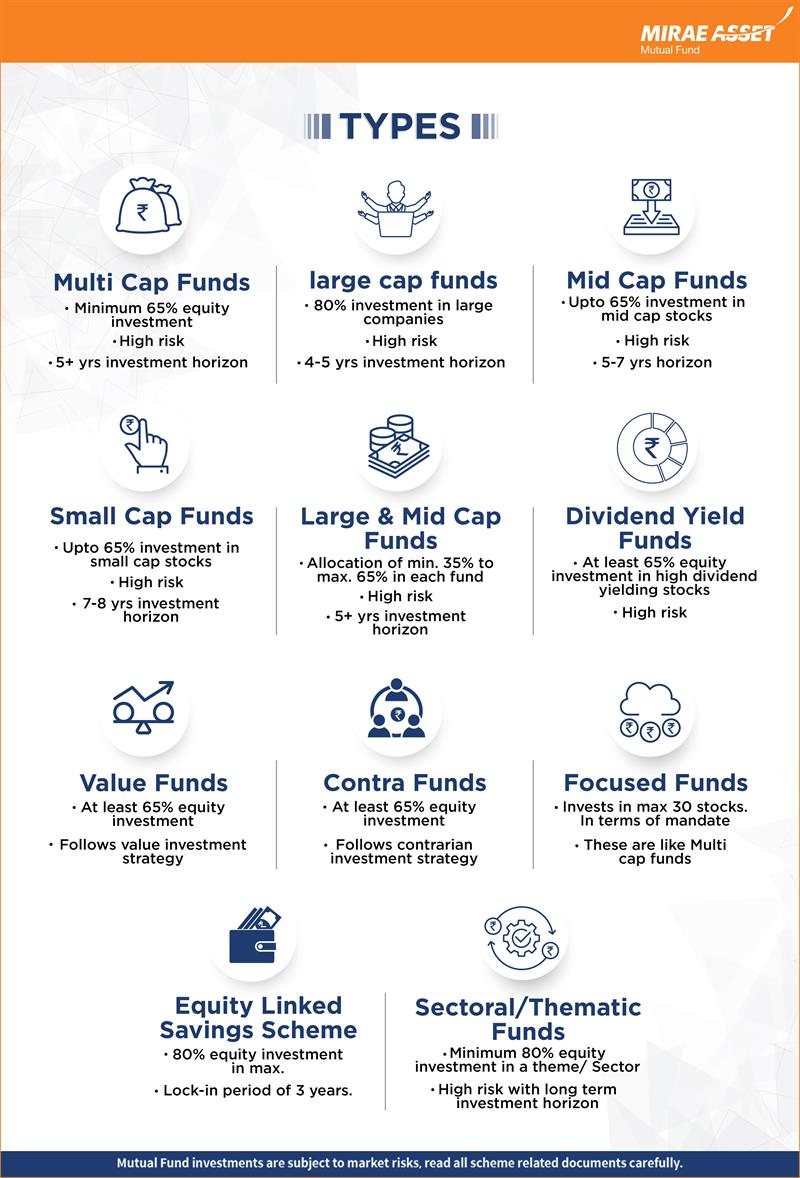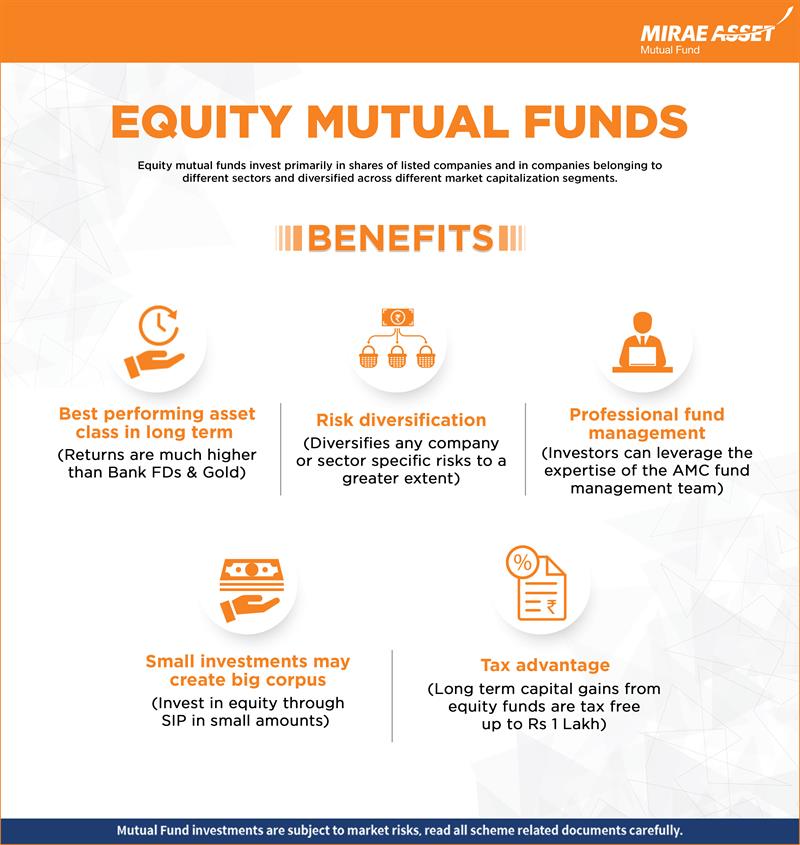Module 2 : Type Of Mutual Funds
Types of Equity Mutual Funds?
Types of Equity Mutual Funds?
Equity mutual funds invest primarily in shares of listed companies. Equity funds can either be active or passive. The fund manager of an active fund researches companies from different sectors and tries to invest in companies which are likely to outperform in the future. A passive fund on the other hand invests in a basket of stocks which mirror a market index e.g. NIFTY or Sensex in exactly the same proportion as they are present in the index.

Why invest in Equity Mutual Funds?
- Historically Best performing asset class in the long term : In the last 30 years (Period: 1st October 1990 – 30th September 2020), the BSE Sensex has given 11.6% CAGR returns which is significantly higher than other asset classes like bank fixed deposits and Gold (Source: Advisorkhoj Research, 30th Sep 2020).
- Risk diversification : By investing in an equity mutual fund in India, you invest in a diversified portfolio of stocks across different sectors and thus able to diversify any company or sector specific risks to a greater extent.
- Professional fund management : Stock selection requires expertise and experience in investment management. The track record of fund managers of an AMC is available in the public domain.
- Start investing with small amounts: You can start investing also through Systematic Investment Plan (SIP) mode with installments of just Rs 100 or Rs 500 a month depending on the fund house. SIP is convenient way of investing small amounts at a set frequency and date in a disciplined way.
- Tax Advantage : Equity funds enjoy significant tax advantage over most other investments. Long term (investments held for more than 12 months) capital gains from equity funds are tax free up to Rs 1 Lakh in a financial year and taxed at 10% thereafter. Short term (investments held for less than 12 months) capital gains are taxed at 15%.

Type of Equity Mutual Funds
Equity funds need to invest at least 65% of their portfolio in equity and equity related securities. These funds are categorized on the basis of market cap composition, investment styles, tax benefits and sectors / themes. According to SEBI, Top 100 companies by full market capitalization are classified as large cap companies, 101st – 250th are classified as midcap and 251st and smaller companies are classified as small cap
-
Equity funds are classified into 5 categories based on market capitalization composition (please see the table below.
| Category | Large Cap Allocation | Midcap Allocation | Small Cap Allocation | Risk Profile | Investment Tenure |
|---|---|---|---|---|---|
|
Large Cap Funds |
80% or more |
- |
- |
Moderately high |
4 – 5 years |
|
Midcap funds |
- |
65% or more |
- |
High |
5 – 7 years |
|
Small Cap funds |
- |
- |
65% or more |
High |
7 – 10 years |
|
Large and Midcap Funds |
35% to 65% |
35% to 65% |
- |
High |
5+ years |
|
Multi Cap Funds |
25% or more |
25% or more |
25% or more |
High |
5+ years |
- Following are the equity fund categories based on investment style.
- Focused fund which can invest in maximum 30 stocks across sectors and market capitalization segments.
- Dividend Yield fund which invest predominantly in high dividend yield stocks (high dividend relative to market price).
- Value funds which invest predominantly in value stocks i.e. stocks available at discount to intrinsic value.
- Contra funds which follow contrarian investment strategy i.e. investing against market trend.
- Equity-linked Saving Scheme (ELSS): These are essentially equity funds with a lock-in period of 3 years from the date of investment. One can save taxes under Section 80C* of Income Tax Act 1961 by investing maximum Rs 150,000 in ELSS in financial year.
- Sectoral / Thematic Funds: These funds have to invest minimum 80% of the portfolio in stocks of a particular sector and are classified accordingly e.g. Pharma, Technology, Consumption, Banking etc. These funds are suitable only for investors with high risk appetite and long investment horizon. These should not be part of investors’ core mutual fund portfolio. One can add these funds to the core portfolio to take advantage of market opportunities.
- Equity funds are classified into 5 categories based on market capitalization composition (please see the table below.
Note*: Assuming that investor has opted for old tax regime for the FY 20-21.